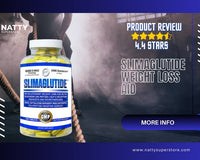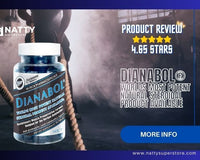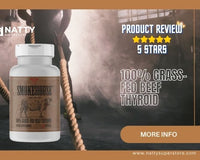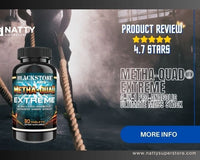Beta-Ecdysterone: Naturally Enhancing Athletic Performance
Beta-Ecdysterone, also known as 20-Hydroxyecdysone, naturally occurs in some plants and insects, where it helps control growth. In the world of fitness and bodybuilding, this compound is popular for its muscle-building properties. Research shows it could boost muscle growth, enhance performance, and do so without the harmful side effects of traditional steroids. This article looks into beta-ecdysterone, discussing its advantages, possible drawbacks, and how it supports athletic performance and bodybuilding.
Understanding
Beta-Ecdysterone is a kind of ecdysteroid, substances that act like hormones in bugs but are found in plants too, often defending them against plant-eating animals. Research has indicated that it might increase muscle size, improve endurance, and boost overall athletic ability. Given its natural source and reputation for safety, many see beta-ecdysterone as a great natural alternative to synthetic steroids for enhancing physical performance.
Key Actions of Beta-Ecdysterone
- Protein Synthesis and Muscle Growth: It likely encourages protein synthesis, which helps repair and grow muscles.
- Strength and Endurance: It can increase physical strength and endurance, improving athlete performance.
- Metabolic Benefits: Studies show it positively impacts fat and sugar metabolism, helping improve body composition.
- Non-Hormonal Benefits: It is thought to be non-hormonal in humans, providing muscle-building benefits without hormonal supplement side effects.
Who Benefits from Beta-Ecdysterone?
- Athletes and Bodybuilders: Ideal for those who want natural help with muscle growth and strength.
- Fitness Enthusiasts: Great for anyone trying to get better at their physical activities.
- Health-Conscious Individuals: Suitable for people who want to improve their body composition through fat loss and muscle gain.
- Natural Supplement Users: A good choice for those avoiding the hormonal side effects of traditional steroids.
Benefits of Using Beta-Ecdysterone
- Muscle Growth and Recovery: It promotes more muscle mass and may cut down on recovery times after tough workouts.
- Strength and Endurance: It boosts strength and stamina, making training sessions more effective.
- Improved Body Composition: It can enhance the balance of muscle to fat, improving overall physical appearance.
- A Safe Steroid Alternative: Offers a plant-based, hormone-free choice over synthetic steroids, with fewer risks.
Considerations and Precautions
While generally safe, beta-ecdysterone requires consideration of several factors:
- Research on Safety: Studies on its long-term safety and side effects are still limited.
- Healthcare Consultation: Anyone with health issues or on medication should talk to a healthcare provider before starting.
- Quality of Supplements: Choosing high-quality supplements is crucial as the strength and purity of beta-ecdysterone can vary significantly.
Enhancing Your Fitness Routine with Beta-Ecdysterone
- Enhanced Athletic Performance: Helps you reach your fitness goals by supporting muscle growth and recovery.
- Improved Physique: Its ability to increase muscle and decrease fat can create a more toned and athletic body.
- Natural Supplementation: Provides a safer, natural alternative to synthetic steroids.
- Overall Wellness Support: May boost metabolism and support physical activity, contributing to a comprehensive health approach.
Beta-Ecdysterone is emerging as a notable natural supplement for boosting muscle growth, strength, and performance. Its natural sources and non-hormonal nature make it a safer option compared to traditional steroids. Nonetheless, further research is essential to fully understand its long-term safety and effectiveness.
Disclaimer: This is a blog post from Natty SuperStore and is for informational purposes only, not medical advice.
For more blogs on ingredients please click here.
References:
1. Dinan, L. (2001). The Karlson lecture. Phytoecdysteroids: What use are they? Archives of Insect Biochemistry and Physiology, 47(2), 57-65. Available at: https://onlinelibrary.wiley.com/doi/abs/10.1002/arch.1042
2. Gorelick-Feldman, J., MacLean, D., Ilic, N., Poulev, A., Lila, M. A., Cheng, D., & Raskin, I. (2008). Phytoecdysteroids increase protein synthesis in skeletal muscle cells. Journal of Agricultural and Food Chemistry, 56(10), 3532-3537. Available at: https://pubs.acs.org/doi/abs/10.1021/jf073059z








